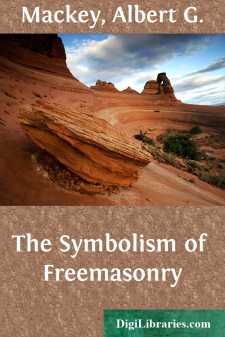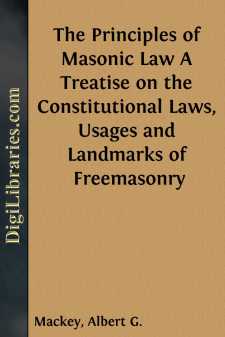Categories
- Antiques & Collectibles 13
- Architecture 36
- Art 48
- Bibles 22
- Biography & Autobiography 813
- Body, Mind & Spirit 142
- Business & Economics 28
- Children's Books 17
- Children's Fiction 14
- Computers 4
- Cooking 94
- Crafts & Hobbies 4
- Drama 346
- Education 46
- Family & Relationships 57
- Fiction 11829
- Games 19
- Gardening 17
- Health & Fitness 34
- History 1377
- House & Home 1
- Humor 147
- Juvenile Fiction 1873
- Juvenile Nonfiction 202
- Language Arts & Disciplines 88
- Law 16
- Literary Collections 686
- Literary Criticism 179
- Mathematics 13
- Medical 41
- Music 40
- Nature 179
- Non-Classifiable 1768
- Performing Arts 7
- Periodicals 1453
- Philosophy 64
- Photography 2
- Poetry 896
- Political Science 203
- Psychology 42
- Reference 154
- Religion 513
- Science 126
- Self-Help 84
- Social Science 81
- Sports & Recreation 34
- Study Aids 3
- Technology & Engineering 59
- Transportation 23
- Travel 463
- True Crime 29
Albert G. Mackey
Albert G. Mackey (1807–1881) was an American physician, historian, and prolific author, best known for his influential works on Freemasonry. A prominent figure in Masonic scholarship, he wrote extensively about the history, rituals, and symbolism of Freemasonry, contributing to its modern interpretations. His most well-known works include "The Symbolism of Freemasonry" and "The Encyclopedia of Freemasonry." Mackey's writings remain a foundational reference for Freemasons and scholars interested in Masonic traditions and esoteric studies.
Author's Books:
Sort by:
by:
Albert G. Mackey
I. Preliminary. The Origin and Progress of Freemasonry. Any inquiry into the symbolism and philosophy of Freemasonry must necessarily be preceded by a brief investigation of the origin and history of the institution. Ancient and universal as it is, whence did it arise? What were the accidents connected with its birth? From what kindred or similar association did it spring? Or was it original and...
more...
by:
Albert G. Mackey
Chapter I. Historical Sketch. Grand Lodges under their present organization, are, in respect to the antiquity of the Order, of a comparatively modern date. We hear of no such bodies in the earlier ages of the institution. Tradition informs us, that originally it was governed by the despotic authority of a few chiefs. At the building of the temple, we have reason to believe that King Solomon exercised...
more...



